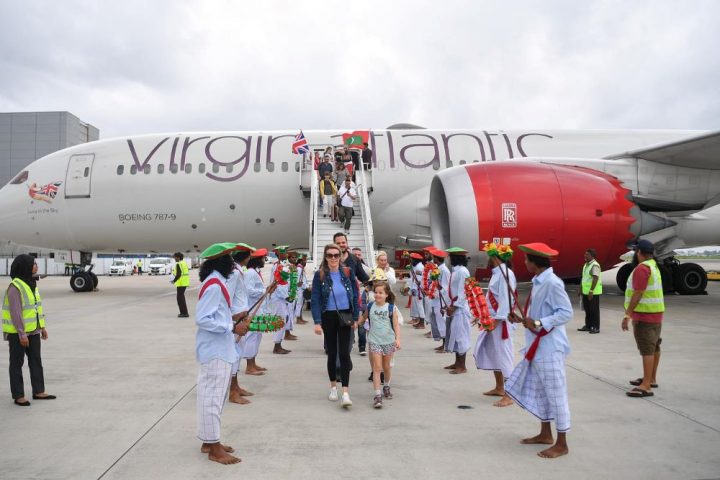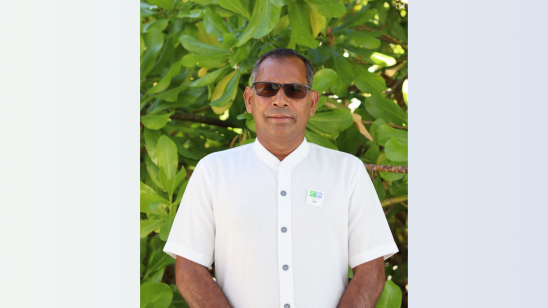
Summer 2025 travel trends: What European travelers want from destinations like Maldives
Despite ongoing economic turbulence and climate concerns, European travelers are holding onto their summer holidays with renewed determination. Allianz Partners’ 2025 European Summer Vacation Confidence Index reveals that 75% of Europeans still intend to travel between July and September—good news for global destinations like the Maldives that rely heavily on European outbound tourism.
However, for industry professionals in the Maldives, the message comes with layers. While appetite for travel remains strong, it’s evolving: travelers are more value-conscious, environmentally aware, and risk-sensitive than ever before.
So, what should Maldivian resorts, DMCs, and tourism authorities take away from this year’s report?
Travel Still a Priority, But Financial Caution Rules
Europeans are clearly prioritizing their summer getaways, with many reducing leisure spending at home—like dining out, entertainment, and even delaying big-ticket purchases—to ensure they can afford a trip. The average household spend on summer travel is projected to increase 12% this year, reaching €2,217.
For Maldives-based tourism businesses, this trend suggests that while budgets are tight, Europeans are still willing to spend. The key lies in offering perceived value. Luxury properties and high-end experiences must demonstrate why they’re worth the investment—whether through all-inclusive perks, value-added services, or curated local experiences.
Growing Demand for Authentic, Sustainable, and Ethical Travel
More than ever, Europeans are seeking holidays that are both meaningful and sustainable. Over 70% of respondents said it’s important their spending benefits the local community, and 53% now actively worry about extreme weather events, which influence their travel decisions.
This is a golden opportunity for Maldivian tourism operators to showcase environmental credentials and community involvement. Resorts that highlight coral restoration efforts, plastic-free initiatives, or partnerships with local artisans and island communities can align directly with evolving traveler values.
A well-marketed sunset dhoni cruise with a local guide, or a marine biologist-led snorkeling tour that supports reef conservation, is now more than an experience—it’s a statement of purpose.
Geopolitical Sensitivity and Risk Awareness Rising
The report also highlights a rise in geopolitical anxiety. Nearly half (47%) of respondents are concerned about instability, border restrictions, and personal safety. With Europe still processing the effects of recent wars, political instability, and natural disasters, safety and predictability are premium assets.
Maldives, perceived as a peaceful, remote, and secure destination, can capitalise on this. Promoting the country as a “safe haven in uncertain times” may resonate well with risk-conscious travelers.
Domestic vs. International Travel: A Competitive Landscape
While many Europeans still plan to travel abroad (42%), nearly half (48%) will opt for domestic holidays. In markets like Italy, Spain, France, and Poland, local travel is dominating. Meanwhile, in wealthier markets like the UK, Switzerland, Germany, and the Netherlands, outbound travel remains strong—with notable spending increases.
This points to a need for hyper-targeted marketing. Maldivian resorts and DMCs should focus efforts on high-potential outbound markets like Switzerland (where summer travel spend is up to €3,722 per household) and the UK (€2,747), using tailored campaigns that emphasise direct flights, ease of access, and unique experiences unavailable at home.
Digital Planning and GenAI Gaining Momentum
Another notable trend is the growing use of generative AI tools for holiday planning. About 32% of European travelers are now using GenAI (up from 29% in 2024), relying on tools like ChatGPT for inspiration, itineraries, and travel hacks.
For the Maldives tourism sector, this means AI-optimised content must be part of the digital strategy. Ensuring that your resort’s offerings, packages, and sustainability stories are clearly described on your website and SEO-optimized can increase the chances of being included in AI-generated travel plans.
AI-assisted users often ask for “best honeymoon resorts,” “eco-luxury Maldives experiences,” or “hidden island gems”—terms your content should address in clear, informative language.
Insurance Confidence and Peace of Mind
With 62% of travelers purchasing insurance this summer and 86% acknowledging its role in peace of mind, safety and security messaging is crucial.
The Maldives should continue to promote its low-risk health environment, strong resort safety protocols, and partnerships with international insurance providers, like Allianz’s Allyz app, which offers real-time assistance and AI-powered claims. Providing guests with insurance-friendly policies and medical support visibility can set a property apart.
The Big Picture: Maldives as a Conscious Luxury Destination
The Allianz 2025 report tells us that travelers are evolving. While they’re still spending—and even increasing their spend—they’re more thoughtful than ever. For the Maldives, this is a call to action: move beyond just paradise imagery.
Highlight local impact, build resilience narratives around climate adaptation, communicate value transparently, and craft digital-first, ethical storytelling.
Summer 2025 may not look like 2019, but with the right strategic pivots, Maldives can remain not just a dream destination—but a conscious choice.
For more insights, interviews, and strategy guides for hospitality leaders in the Maldives, stay tuned to Hotelier Maldives.






